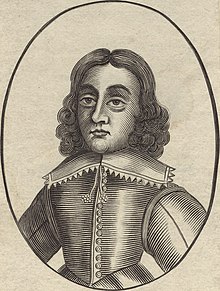Our website is made possible by displaying online advertisements to our visitors.
Please consider supporting us by disabling your ad blocker.
Highwayman


A highwayman was a robber who stole from travellers. This type of thief usually travelled and robbed by horse as compared to a footpad who travelled and robbed on foot; mounted highwaymen were widely considered to be socially superior to footpads.[1] Such criminals operated until the mid- or late 19th century. Highwaywomen, such as Katherine Ferrers, were said to also exist, often dressing as men, especially in fiction.[citation needed]
The first attestation of the word highwayman is from 1617.[2] Euphemisms such as "knights of the road" and "gentlemen of the road" were sometimes used by people interested in romanticizing (with a Robin Hood–esque slant) what was often an especially violent form of stealing. In the 19th-century American West, highwaymen were sometimes known as road agents.[3] In Australia, they were known as bushrangers.
- ^ Rid, Samuel. "Martin Markall, Beadle of Bridewell," in The Elizabethan Underworld, A. V. Judges, ed. pp. 415–416. George Routledge, 1930. Online quotation. See also Spraggs, Gillian: Outlaws and Highwaymen: the Cult of the Robber in England from the Middle Ages to the Nineteenth Century, pp. 107, 169, 190–191. Pimlico, 2001
- ^ Fennor, William. "The Counter's Commonwealth," in The Elizabethan Underworld, p. 446.
- ^ Brewer, E. Cobham. Dictionary of Phrase and Fable, 1898, defines road-agent as "A highwayman in the mountain districts of North America," citing the generation earlier, W. Hepworth Dixon, New America, p. 14: "Road-agent is the name applied in the mountains to a ruffian who has given up honest work in the store, in the mine, in the ranch, for the perils and profits of the highway."
Previous Page Next Page


